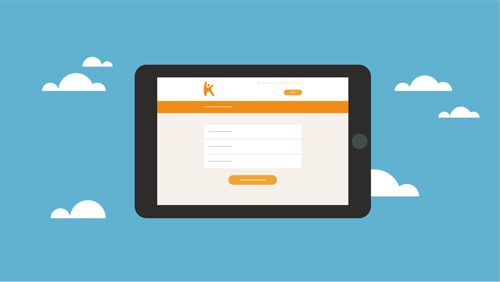13 Reasons Why Cloud-Based Medical Software Is the Right Choice for Your Practice
 Cloud-based practice management systems provide an affordable, secure alternative to installing a local server for independent practices.
Cloud-based practice management systems provide an affordable, secure alternative to installing a local server for independent practices. ![]()
In fact, practices of all sizes have been migrating to the cloud in increasing numbers in the past few years to leverage the available technology and mitigate the burdens of maintaining an individual server and the IT staff to service it. The benefits of choosing the cloud over a server-based system are substantial, and for solo and small group practices the cloud is a clear winner.
Benefits of a cloud-based medical practice software include:
- Less up-front cost: The savings of choosing a cloud-based system over one that is server-based are substantial. While a system that uses the cloud has an average initial cost of $3,600, a server-based system can run over $40,000. In fact, with a server-based system, once you factor in the loss of productivity due to the increased difficulties of implementation of these types of systems, the cost in the first year is closer to $150,000. There is no doubt that the cloud is more cost-effective.
- No server hardware or software to purchase/house/maintain: Clouds alleviate the need for hardware infrastructure and the need to invest in these technologies, leading to a reduction of costs for the practice. Not only does not having to install or maintain hardware save money initially, it means that there is no need to hire IT staff, which translates into long-term savings.
- Easier transition: Implementation is much simpler with cloud-based EHR systems. EHR software runs on the web instead of the computer, meaning no hardware or software installation. Practices can prevent interruption of cash flow and get a faster return on investment with an implementation process much quicker than server-based systems.
- Better support: It can be difficult for independent practices to afford a full-time IT staff to handle maintenance and security issues. Cloud providers, on the other hand, provide this full-time support as part of the monthly fee.
- More cost effective for solo/small group practices: For solo or small group practices, the cloud is clearly the winner. With its low up-front costs and decreased staffing needs, it gives these practices a competitive edge, evening out the playing field with the larger groups, using server-based systems.
- Vendor more likely to meet HIPAA regulations than practice: Cloud systems achieve HIPAA compliance through data centers with bank-level security and high-level encryption methods that render data unreadable, even if a security breach occurs.
- Onus on vendor to meet Meaningful Use: By moving their data to the cloud, practices can shift some of the burden of meeting Meaningful Use to the vendor, who has more resources available to comply with the requirements.
- Good for physicians who are not office-based or travel a lot: By storing data in the cloud, healthcare providers ensure their staffs have access to information anywhere and anytime. This gives practices the flexibility to handle tasks, even when away from the office.
- Availability of high-speed internet options makes accessing the cloud quick and easy: Thanks to the wide-spread availability of high-speed internet options, including T1 lines, cloud access is quick and easy for practices of all sizes. In fact, cloud-based systems are now often faster than server-based systems.
- Patient information is secure in a proven system: Cloud-based systems are used for everything from banking to shopping on Amazon. These systems have a proven model of security with bank-level security and high-level encryption methods that render data unreadable, even if a security breach occurs.
- Provides backup and disaster recovery: Practices with cloud-based practice management systems are protected in the event of fire, flood, tornado, or other natural disaster. These systems provide regular backups and store all data in multiple secured locations. If a disaster strikes, the practice can still access its data from any computer with an internet connection.
- Regular updates keep up with the dynamic market: With cloud-based systems, updates are automatic and included in the monthly vendor fee, always keeping the practice up-to-date in the constantly changing healthcare market.
- Mobility Leads to higher satisfaction: Cloud-based systems are built to be mobile. Not only does this allow practices to perform necessary tasks anytime, anywhere, this mobility leads to higher satisfaction. In fact, a survey by EHR review group, Software Advice, found that providers using EHRs via mobile systems expressed twice the satisfaction levels of those using non-mobile systems.
Healthcare is transitioning to the cloud at an ever-increasing rate and independent practices are no exception. With the lower cost, higher security, better support, and mobility offered along with many other benefits the cloud is an easy choice.




















